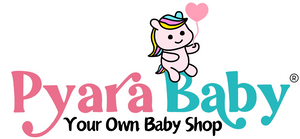The Inherent Difference Between a Mom's and Dad's Duties — And How It's So Normal

In every home, there's an unsaid rhythm — a natural choreography that parents fall into. No one teaches them this dance. It just… happens. The roles a mother and father play may overlap, switch, or evolve, but the underlying differences in their approach and presence often remain. And you know what? That’s not just okay — it’s absolutely normal.


It Starts with Nature, Not Expectation
From the moment a child is born, the mother's role is biologically driven — feeding, soothing, responding to the baby's tiniest cues. It’s not that dads aren’t capable — it’s just that moms are biologically wired to respond first, faster, and often with more emotional intuition.

Dads, on the other hand, become protectors and providers in their own silent, powerful ways. Many new fathers often feel a bit sidelined in the early months, unsure of their role. But slowly, as the baby starts interacting, laughing, needing different kinds of attention — that’s where many fathers truly find their groove.

Mom: The Constant Thought-Cloud
A mom’s brain is always “on.” She remembers vaccination dates, the last time the child pooped, when the next school project is due, and what snack will avoid a meltdown at 4 PM. Moms, by default or design, become the mental managers of the household. They are emotional anchors, even when their own boats are rocking.

Dad: The Steady Anchor
Dads are often the calm in the chaos. They may not multitask like moms do, but their strength lies in singular focus. Whether it’s bedtime stories, Sunday park visits, or fixing that broken toy, dads show up with a presence that often balances out the emotional intensity kids share with their moms.

It’s Not About Inequality, It’s About Identity
Our world today encourages equality in parenting — and rightly so. But equality doesn’t mean sameness. Moms and dads bring different energies, perspectives, and approaches. That diversity is what gives children balance. One parent might be the nurturer, the other the motivator. One might focus on rules and boundaries, the other on comfort and flexibility. Both are vital.

Society Is Changing, But Instincts Remain
We see dads taking paternity leave, learning how to swaddle, and showing up at PTMs. We see moms working late, running businesses, and still remembering to carry extra wipes in their bags. The lines are blurring, but the instincts still hold.
What we must remember is — it's okay if mom is the one who gets up first when the baby cries. It’s okay if dad is the one who teaches the child to ride a cycle. It’s okay if both do both — or if they don't. There is no “one right way.”

Celebrate the Difference
Instead of comparing or correcting, let’s start celebrating the natural differences in how moms and dads parent. Children don’t need two identical caregivers — they need two loving ones, who bring different colors to the canvas of their childhood.
So, the next time you see a dad forgetting the diaper bag or a mom stressing over school labels, take a breath. This is all part of the beautiful, chaotic, perfectly imperfect dance called parenting.

And yes — this difference?
It’s not a flaw.
It’s a feature.


